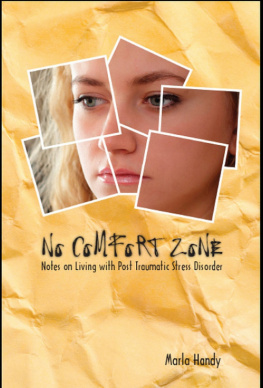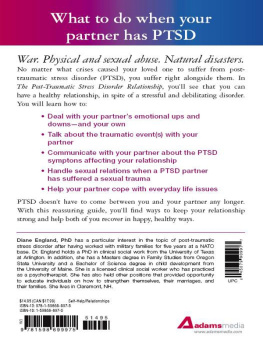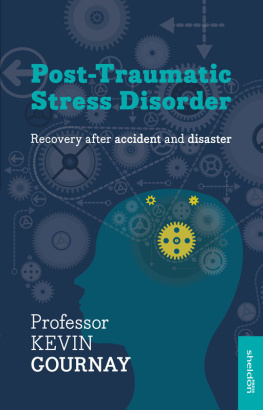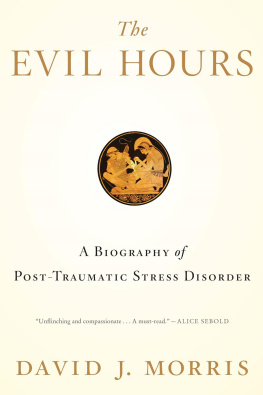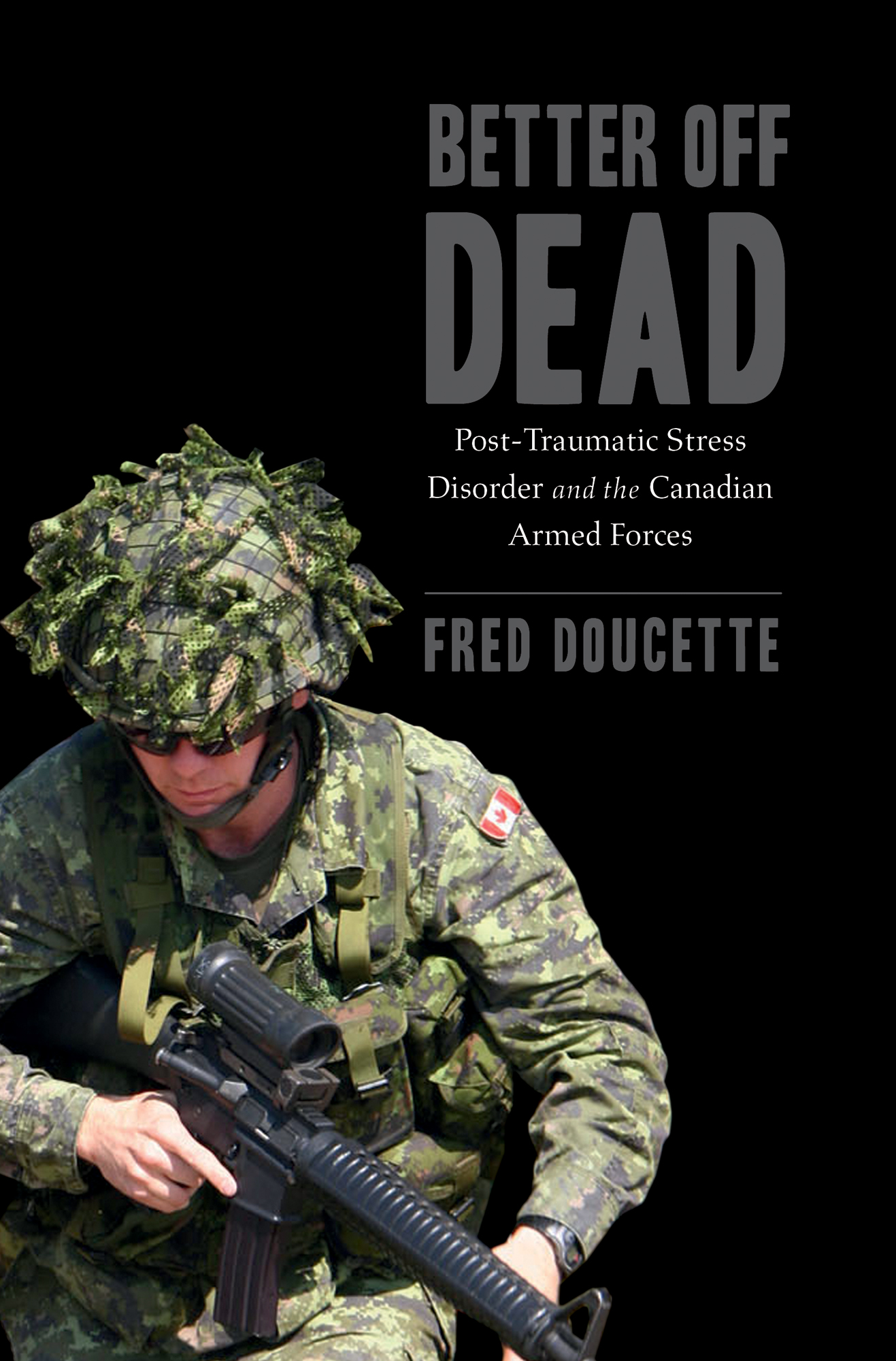Copyright 2015, Fred Doucette
All rights reserved. No part of this book may be reproduced, stored in a retrieval system or transmitted in any form or by any means without the prior written permission from the publisher, or, in the case of photocopying or other reprographic copying, permission from Access Copyright, 1 Yonge Street, Suite 1900, Toronto, Ontario, m5e 1e5.
Nimbus Publishing Limited
3731 Mackintosh St, Halifax, NS B3K 5A5
(902) 455-4286 nimbus.ca
Printed and bound in Canada
nb1211
Cover photo: Alamy Images, BDAA6B
Cover Design: Heather Bryan
Interior Design: jvdw Designs
Library and Archives Canada Cataloguing in Publication
Doucette, Fred, author
Better off dead : post-traumatic stress disorder and the
Canadian Armed Forces / Fred Doucette.
Issued in print and electronic formats.
ISBN 978-1-77108-354-6 (paperback).ISBN 978-1-77108-355-3 (html)
1. Doucette, Fred. 2. War neurosesCanada. 3. Post-traumatic stress
disorderCanada. 4. VeteransMental healthCanada. 5. SoldiersMental healthCanada. 6. VeteransMental health servicesCanada.
7. SoldiersMental health servicesCanada. 8. CanadaArmed ForcesMedical care. 9. Medicine, MilitaryCanada. I. Title.
RC550.D68 2015 616.85212 C2015-904325-5
C2015-904326-3
Nimbus Publishing acknowledges the financial support for its publishing activities from the Government of Canada through the Canada Book Fund (CBF) and the Canada Council for the Arts, and from the Province of Nova Scotia. We are pleased to work in partnership with the Province of Nova Scotia to develop and promote our creative industries for the benefit of all Nova Scotians.
The military mind will not, perhaps does not dare, admit that there comes a time to every fighting man (unless death or bloody ruination of the flesh forestalls it) when the Worm not steel and flame becomes his nemesis.
Farley Mowat, And No Birds Sang
FOREWORD
C anadian soldiers have always been war-fighters. They bring their knowledge, discipline, and professionalism to some of the most dangerous places in the world. They carry our values in their hearts and minds, and are not immune to the horror of conflict or the invisible wounds of Post-Traumatic Stress Disorder ( PTSD ) that have followed it through the ages. Better Off Dead is a powerful account of how Canadian society has failed its soldiers and veterans suffering from PTSD . A highly respected leader and courageous soldier, author Fred Doucette provides raw reports of soldiers search for understanding and support some successful and, sadly, others tragic. He is one of the pioneers blazing the trail in bringing operational stress injury from darkness into the light, and his experiences, and the stories he tells of others, are real and insightful.
With well over forty years of experience with the Canadian Armed Forces ( CAF ), Fred has worked for the last decade as a peer support coordinator with the Canadian Forces Operational Stress Injury Social Support ( OSISS ) Program. He has helped soldiers and others deal with the storms of emotion that push them into a deep state of depression, where demons own their hearts and they truly think they would be better off dead. He has witnessed how families suffer when the ugliness of war invades the mind of a soldier. And he is also able to provide precious insights into the RCMP , and the issues of sexual assault and suicide.
The end of un Peacekeeping, NATO interventions, and coalition missions have caused todays mental wounds. Fred reminds us that the CAF needs to mature swiftly and appreciate the relationship between physical and psychological health. He inspires us to consider a total-person concept and to respect that PTSD is a valid injury that desperately requires education and understanding now. Better Off Dead offers rich insights for all leaders in the CAF and Veterans Affairs as well as first-responder organizations including the RCMP . By embracing the lessons shared by Fred and others, you too could be rewarded, as Fred frequently was, by having someone say to you, You saved my life.
Pro Patria!
Peter Devlin
Lieutenant-General (Retired)
July 2015
PREFACE
I ts 4:30 p.m. on a Thursday and another therapy session is over. Nothing earth-shattering discovered or resolved, just the familiar uneasy feeling I get when weve been working on some of the deeply buried memories. My psycho sessions with my psycho lady have been part of life for the past ten years. Most of my recovery from post-traumatic stress disorder ( PTSD ) was achieved in my first two years of therapy. For the past eight years my regular sessions have been part of the self-care regimen required by my job while working as a peer support coordinator with the Canadian Forces Operational Stress Injury Social Support Program ( OSISS ). The sessions allow me to download some of the vicarious trauma and stress that I encounter when dealing with soldiers and veterans who are suffering from an operational stress injury ( OSI ), with PTSD being one of the most common of these.
Finishing my therapy at 4:30 usually puts me in the Fredericton rush half-hour the city isnt big enough to have a full-fledged rush hour. Today I was stopped at a street light waiting to turn left when I noticed a dad and his son crossing the street. Watching the little fellows wobbly gait I figured he was about two years old and he seemed overjoyed to be out with his dad. He wore a sky-blue toque, red mittens, and snow boots that went up to his knees and looked too big for his little legs and feet. He reminded me of my grandson Logan who is just shy of two years old and proud as punch that he can get around on his own little legs.
The little guy and his dad made it across the street, my light changed, and I made my turn. I was abreast of them and took one more look at the little fellow. Then it was as if everything slipped into slow motion as the little boy turned his head towards me and looked me straight in the eyes. His face was a picture of innocence, his eyes were dark, and in them I imagined a look of fear. Those eyes caught me off guard and tripped a trigger that I thought I had under control. In an instant I was awash in a flood of anxiety and fear for this unknown child. It was a look I had seen a hundred times before in Bosnia and it was now unlocking a door to memories I feared. My breathing became short, I could feel the rush of adrenaline hit the way it used to in Bosnia when I had to deal with incidents involving kids. My stomach felt as if it had rolled over, my grip on the steering wheel tightened, my vision drew in and focused on what was in front of me everything else was grey. I was heading towards a full-blown flashback and I knew I had to get a grip on it before it got me.
As if possessed, I began yelling, Dont let it get you, dont let it get you, youre in Fredericton on your way home, the kid is OK , youre not in Bosnia, your grandkids are OK , theyre safe, youre in Canada not Bosnia, everyone is safe, you are going home to supper, its OK , Fred, its OK , Fred. An overwhelming rush of emotion came over me like a hot flash, my eyes started to tear up and a feeling of gut-wrenching grief hit me as I imagined what it would be like to lose someone dear to me, especially a child. My mantra had kept the flashback at bay, but now I was wrapped in an emotional dive.
Breathe, Fred, I said out loud. In through the nose, hold it, breathe out through the mouth, relax your grip, everyone is OK , think of the good not the evil, theyre safe. Keep breathing, youll see them grow into adults, no one will harm them. I felt my grip loosen and my vision widen. I kept mumbling positive words as I made my way home. Stopping at our mailbox I got out and gulped in fresh air as if I had almost drowned. I guess drowning is a good analogy when it comes to explaining what had just happened to me. It is as if you are fifty feet underwater and you have only enough air to make it halfway up. Youre looking up and you can see the light of the surface but you lose strength and weaken, it gets darker, and youre dumped into your little piece of hell again.


